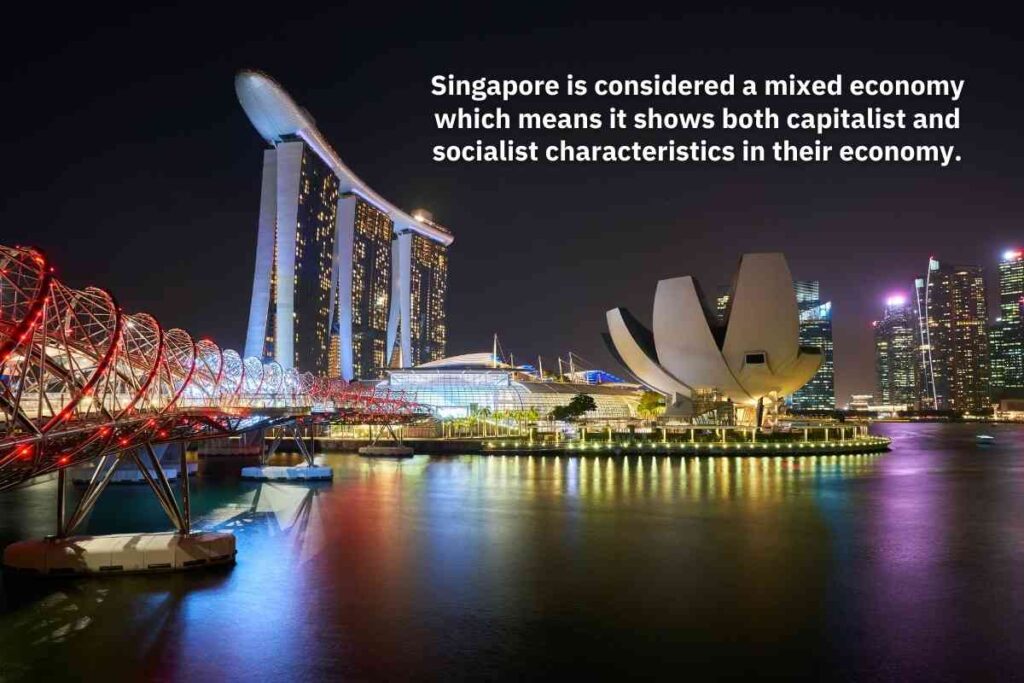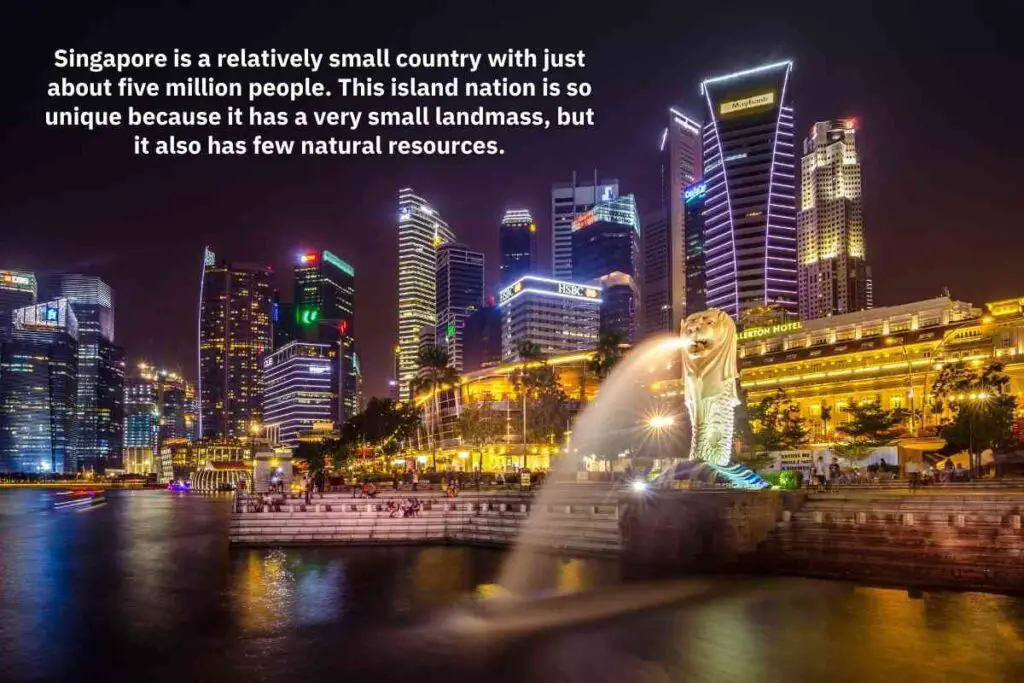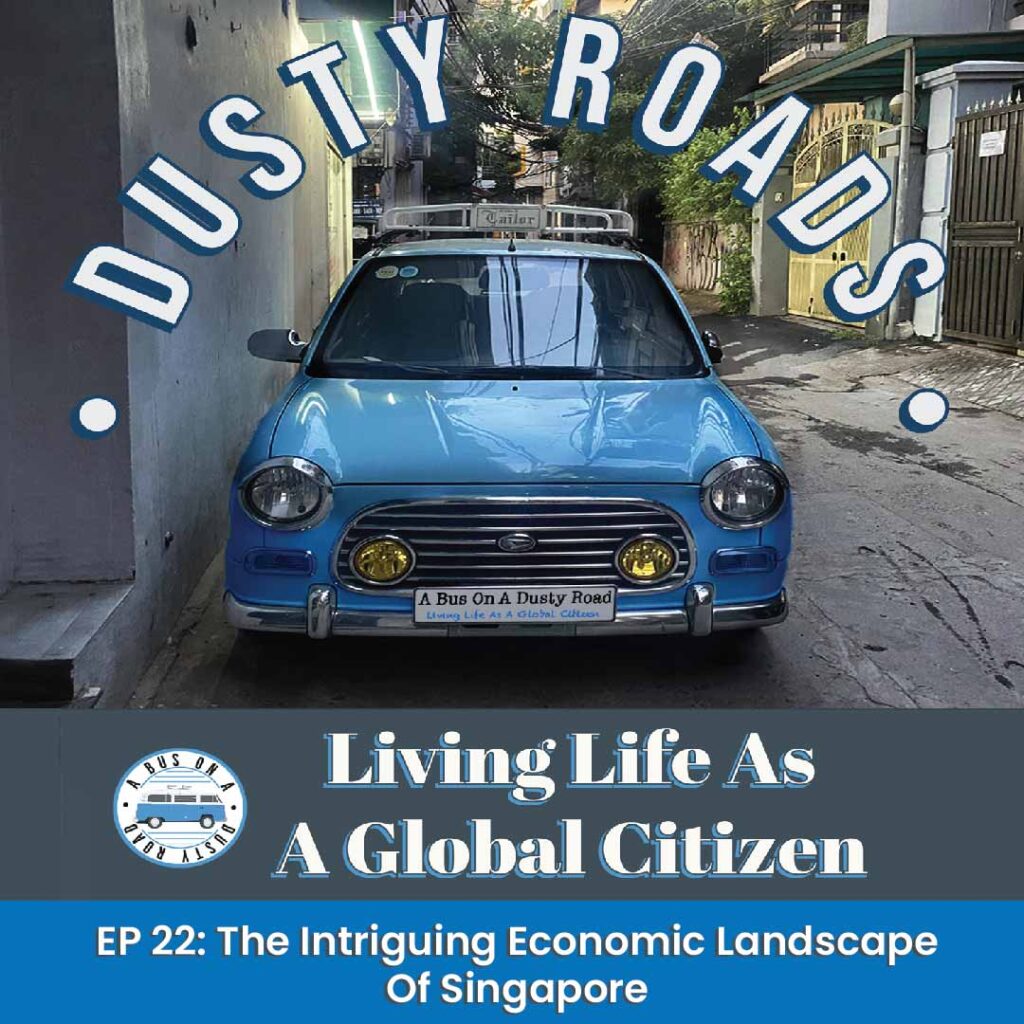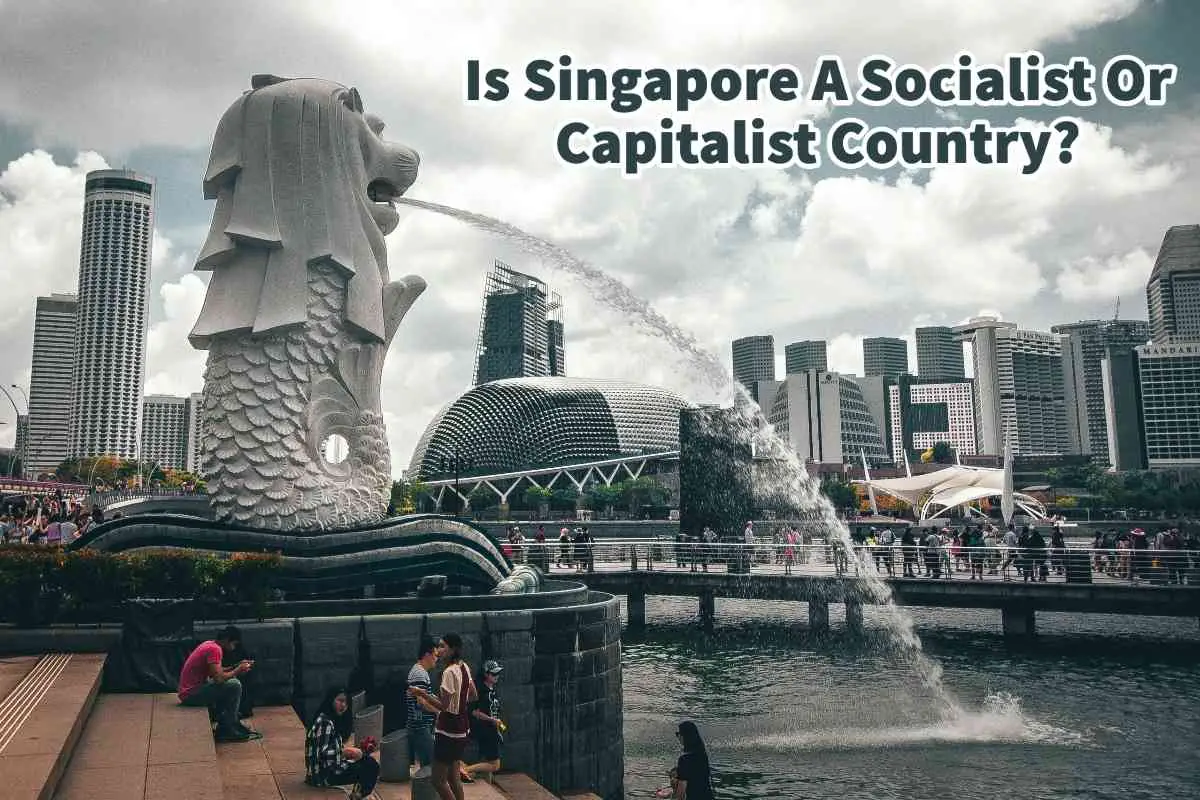Singapore is a small island state that is located in Southeast Asia. This small country is also a place that continues to show the world how socialism and capitalism can mix.
Singapore has characteristics of both a socialist and capitalist country, so they have a mixed economic system. They are also ranked number one in the world for freedom. Singapore has been an extremely prosperous country that is not just considered to be economically free but also very wealthy.
Table of Contents
- Understanding Singapore’s Economic Model: A Blend of Socialism and Capitalism
- The Case Of Singapore’s Economy Explained
- 10 Compelling Reasons to Put Singapore on Your Travel List
- Frequently Asked Questions
- Related Questions
Understanding Singapore’s Economic Model: A Blend of Socialism and Capitalism
Situated in Southeast Asia, Singapore is a testament to the harmonious blend of socialist and capitalist ideals. This small island nation exemplifies how these seemingly contrasting economic systems can coexist and thrive.
Singapore’s economy is a unique mix, embodying aspects of both socialism and capitalism, which has led to its recognition as having a mixed economic system. Furthermore, Singapore is renowned for its high economic freedom, often ranking at the top globally.
This economic approach has contributed to Singapore’s immense prosperity and positioned the nation as a wealthy and economically liberated one, showcasing a successful fusion of diverse economic principles.
Singapore Ranked No. 1 In World For Freedom

Singapore is considered a mixed economy, which shows both capitalist and socialist characteristics in its economy.
Singapore is ranked no 1 in the world for freedom by the Heritage Foundation’s Index of Economic Freedom. In comparison, the United States ranks 25th for freedom.
In looking at the freedom index, the heritage foundation will look at several things, which include:
- Rule of Law – The rule of law includes property rights, judicial effectiveness, and government integrity.
- Government Size – The size factor includes tax burden, government spending, and fiscal health.
- Regulatory Efficiency – Regulatory efficiency factors include business, labor, and monetary freedom.
- Open Markets – Market factors include trade, investment, and financial freedom.
According to the Heritage Foundations Index of Economic Freedom, Singapore ranks much higher than the United States in all these factors.
Recently, Singapore was ranked No. 2 after Hong Kong, but with the many issues Hong Kong has been having, Hong Kong has slipped off the rankings, while this tiny island of Singapore has proudly taken the No. 1 spot.
Behind Singapore, ranking out of the top ten for freedom by the Heritage Foundation Index of Economic Freedom, are Switzerland, Ireland, New Zealand, Luxembourg, Taiwan, and Estonia. America did not make the top 10 for economic freedom, much less the top 20 nations.
This is surprising since the United States, like Singapore, is considered a mixed economic system and shows characteristics of capitalism and socialism. Yet, Singapore consistently ranks higher than the United States for financial freedom and how well they handle global trade and other issues.
Many people feel like Singapore has shown the world that you can have a mixed economy between Socialism and Capitalism and have the freedom to survive and thrive. This tiny nation of Singapore has quietly been doing that for years.
Singapore Has A Mixed Economic System
The Heritage rankings in freedom do not mean Singapore is a fully Capitalist country; many people feel capitalism means complete freedom, but that is not always true. Singapore is a mixed economy like many places worldwide, including the United States.
Having a mixed economy is defined as the following by Investopedia:
“A mixed economic system is a system that combines aspects of both capitalism and socialism. A mixed economic system protects private property and allows a level of economic freedom in the use of capital, but also allows for governments to interfere in economic activities in order to achieve social aims.”
INVESTOPEDIA

Singapore is a relatively small country with just about five million people. This island nation is unique because it has a tiny landmass and few natural resources.
Yet today, it is one of the wealthiest countries in the world and is a center for global trade’ this makes Singapore a unique island nation.
Singapore’s Mix Between Capitalism And Socialism
If you look at Singapore in terms of Capitalism and Socialism, it is a country many do not consider to have many capitalist ideals regarding land ownership.
As was quoted in a British online magazine called Unheard, they said this about Singapore and its land ownership.
“The Singaporean state owns 90 percent of the country’s land. Remarkably, this level of ownership was not present from the beginning. In 1949, the state owned just 31 percent of the country’s land. It got up to 90 percent land ownership through decades of forced sales, or what people in the US call eminent domain.
Unherd
“The Singaporean state does not merely own the land. They directly develop it, especially for residential purposes. Over 80 percent of Singapore’s population lives in housing constructed by the country’s public housing agency HDB.
The fact that the state owns so much of the land in Singapore automatically means that Singapore cannot be defined as a pure capitalist society and would have to be called a country with characteristics of socialism.
Yet Singapore is also considered one of the most accessible countries globally. This shows that having capitalism and socialism or a mixed economy does not mean a country is free; Singapore has shown us quite the opposite.
Listen To Our Podcast About The Intriguing Economic Landscape Of Singapore below.

The government owns a lot of stakes and shares in many of Singapore’s major businesses. The Unheard magazine also pointed this out about the Singapore government and its investments in the business sector of this island nation:
“…there are the state-owned enterprises, which they euphemistically call Government-linked Companies (GLCs). Through its sovereign wealth fund Temasek, the Singaporean government owns a large share (20% or more) of 20 companies (2012 figure). Together these companies make up 37% of the market capitalization of the Singaporean stock market.”
Unherd
The government owns not just the land but also many enterprises; Singapore is an economy mixed between socialism and capitalism.
The Case Of Singapore’s Economy Explained
The mix between capitalism and socialism does not mean there is a lack of freedom for Singaporean citizens. Singapore has shown us that quite the opposite is true.
The People’s Policy Project talks about what they call the ”case of Singapore” when they say:
The case of Singapore … raises an interesting question about what it is people care about when it comes to “capitalism” and “socialism.” Is capitalism primarily about markets or private ownership? Relatedly, is socialism primarily about ending markets or promoting collective ownership? Often these things are bundled together, but they are logically and practically separable. Singapore (and Norway, among others) shows that it is quite possible to collectively own the means of production while also using price systems to assist in the allocation of productive factors. This is what market socialists have been saying for a hundred years.
People’s POlicy Project
The case of Singapore shows us that a country can have a mixed economy and be successful. They can even have what many call a market socialist nation that will look to own means of production for the public good while at the same time allowing a high degree of personal freedom. Singapore has shown the world this is possible.
10 Compelling Reasons to Put Singapore on Your Travel List
The Lion City, as Singapore is fondly called, is a juxtaposition of the modern and the traditional, where skyscrapers coexist harmoniously with ancient temples. Beyond its iconic skyline and bustling shopping streets,
Singapore offers a multi-layered experience that captivates every type of traveler. Let’s explore ten reasons that make Singapore not just a great place to visit but also an exceptional country:
- Cultural Melting Pot: One of Singapore’s most striking features is its multicultural tapestry. Malay, Chinese, Indian, and Eurasian communities, among others, coexist, offering a vibrant cultural experience through festivals, traditions, and daily life.
- Culinary Haven: Singapore’s food scene is legendary. From Michelin-starred restaurants to bustling hawker centers, the island offers a gastronomic journey that caters to every palate and budget. Try dishes like Laksa, Hainanese Chicken Rice, and Chilli Crab.
- Garden City: Despite its urban sprawl, Singapore has beautifully integrated nature into its landscape. The Gardens by the Bay, Singapore Botanic Gardens, and the Southern Ridges are just a few examples of its commitment to green spaces.
- Shopaholic’s Paradise: Orchard Road, Bugis Street, and VivoCity are just the tip of the iceberg when shopping in Singapore. Whether you’re hunting for luxury brands or quirky souvenirs, Singapore’s shopping scene won’t disappoint.
- Safe and Efficient: Known for its strict laws and efficient governance, Singapore is one of the safest cities globally. Its top-notch public transport system also ensures you can traverse the island seamlessly.
- Innovative Attractions: Beyond traditional sights, Singapore boasts innovative attractions like the ArtScience Museum, Universal Studios Singapore, and S.E.A. Aquarium – ensuring entertainment for all ages.
- Architectural Marvels: Singapore’s skyline is dotted with architectural wonders, from the gravity-defying Marina Bay Sands and the durian-inspired Esplanade to the historic Raffles Hotel and intricate temples.
- Nightlife and Entertainment: As the sun sets, Singapore comes alive with a plethora of nightlife options. Clarke Quay, Marina Bay, and Sentosa have clubs, bars, and entertainment shows to keep you entertained till the wee hours.
- Gateway to Southeast Asia: Singapore’s strategic location and world-class airport make it a perfect gateway to explore other Southeast Asian destinations. Whether you’re heading to Bali, Bangkok, or Borneo, Singapore is an ideal stopover.
- Harmony in Diversity: Beyond its sights and sounds, what truly stands out in Singapore is its harmonious societal fabric. Respect for all cultures, progressive thinking, and a sense of unity define this island nation’s spirit.
Singapore is a microcosm of the world, offering global experiences on a single island. Whether you’re a nature lover, an avid shopper, a food enthusiast, or a history buff, Singapore promises a kaleidoscopic adventure that you’ll cherish forever.
At A Bus On A Dusty Road, we talk about everything about history, travel, life, sailing, and ex-pat living. We are all about “Living Life As A Global Citizen.” We explore social, cultural, and economic issues and travel.
We would love to have you be part of our community. Sign up for our newsletter to keep up-to-date by clicking here. If you have any questions, you can contact me, Anita, by clicking here.
Listen to our Podcast called Dusty Roads. You can find it on all major podcast platforms. Try out listening to one of our podcasts by clicking here.
Subscribe to our A Bus On A Dusty Road YouTube Channel filled with great videos and information.
Frequently Asked Questions
Is Singapore a socialist country?
No, Singapore is not a socialist country. It follows a mixed economic system with a strong emphasis on capitalism and free markets
Is Singapore communist or capitalist?
Singapore is neither communist nor purely capitalist. It has a mixed economic system that combines elements of capitalism with some government intervention and regulation.
Is Singapore capitalist?
Yes, Singapore is generally considered a capitalist country. It has a market-based economy with a focus on private enterprise and free markets.
Is Singapore capitalist or socialist?
Singapore leans more towards capitalism. While it does have some social welfare programs, it primarily follows a market-oriented economic system
Does Singapore have a socialist economic model?
No, Singapore does not adopt a socialist economic model. Its economy is built on principles of free trade, private ownership, and entrepreneurship.
How does Singapore’s economic system work?
Singapore’s economic system operates on a mixed model, combining capitalist principles with active government intervention. It emphasizes free trade, business-friendly policies, and fostering entrepreneurship.
What role does the government play in Singapore’s economy?
The Singaporean government plays a significant role in the economy by implementing policies to promote economic growth, investment, and social stability. However, it also encourages private enterprise and market competition.
Does Singapore practice wealth redistribution?
While Singapore has some social welfare programs, it does not heavily rely on wealth redistribution. Instead, it focuses on promoting economic growth and creating opportunities for individuals to improve their own economic situations.
Are there state-owned enterprises in Singapore?
Yes, Singapore does have state-owned enterprises, but they coexist with privately owned businesses. The government’s involvement in certain sectors aims to ensure competitiveness, efficiency, and strategic control.
Is healthcare in Singapore socialized?
Healthcare in Singapore is not entirely socialized. It operates on a mixed system, with a combination of public and private healthcare providers. The government provides subsidies and insurance schemes to ensure affordability and accessibility.
Related Questions
What Happened To The Hmong After The Vietnam War?
When the Vietnam War ended, the Hmong in Laos was in a terrible position; the Hmong fighters were enemies of the present Laotian government and considered “persona nongratis.” Some were forced into labor camps or kicked out of their home and lands. The Hmong made their way eventually to the Laotian – Thai border so they could try to get into the United States via Thailand.
By clicking here, you can discover What Happened To The Hmong After The Vietnam War?
Is It True America Is Both Capitalist And Socialist?
America is considered both a capitalist and socialist economy; America is deemed to have a mixed economy, which means it has both capitalist and socialist characteristics. Having a diverse economy is essential because there are some things that we need the government to intervene with for the public good.
By clicking here, you can discover Is It True America Is Both Capitalist And Socialist?
Is Mexico A Socialist Country?
Mexico is not a truly socialist country but is known to have a mixed economy, which means that Mexico has both capitalist and socialist characteristics and tendencies. Mexico is a mixed economy, as both capitalism and socialism are able to work together.
By clicking here, you can discover Is Mexico A Socialist Country?

